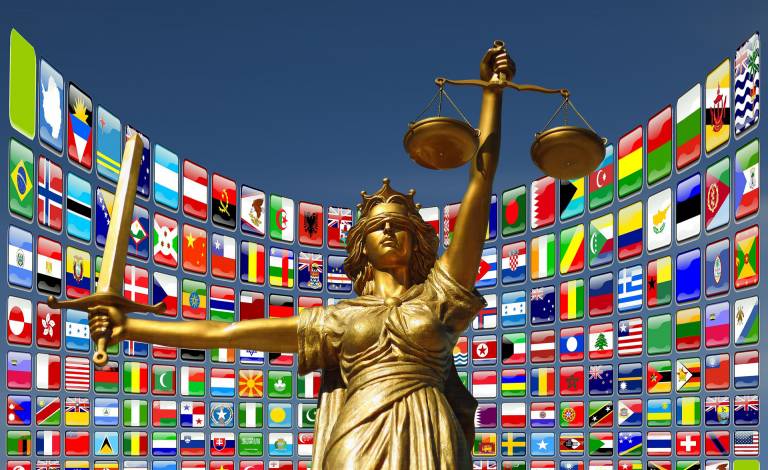Online | The Limits of Positivism in International Law
18 November 2021, 6:00 pm–7:00 pm

This lecture is part of the Current Legal Problems Lecture Series 2021-22
Event Information
Open to
- All
Organiser
-
UCL Laws
Speaker: Dr Devika Hovell (The London School of Economics and Political Science)
Chair: The Rt. Hon. Lord Sales (Justice of the Supreme Court)
About this lecture
Positivism has been described as the lingua franca of international law. For international lawyers, the ‘massive edifice of legal positivism’ is said to be ‘unimpeachable doctrine for most of us’. Yet there are many among us who do not have the time to question positivism’s theoretical foundations or to understand its limitations. Consequently there can be a tendency to exaggerate and at times to misstate the nature and scope of positivism’s contribution to the developing enterprise of international law. A preliminary point for international lawyers to acknowledge is that positivism is not intended to be a comprehensive theory of law. For those interested in the foundations of law and legal system, it supplies only part of the answer. Positivism is essentially a process for identification of valid law, with validity bound up with the way in which law comes into existence. Put simply, according to positivist theory, law is a matter of what has been validly posited. In her lecture, Devika Hovell invites international lawyers to acknowledge the limitations of positivism as a means through which to understand the development of international law and the international legal system. It invites reflection on positivism as a verb to the legal system’s noun. Rather than being the ‘thing’ itself, positivism offers itself as a mechanism that operates within the context of an existing legal system to identify valid laws. It operates in relation to though does not resolve certain central questions, including the existence of an identifiable community, united by the commitment to certain purposes or values, which are in turn rendered into law by a nominated authority. By focusing on positivism as an exhaustive legal method, international lawyers sometimes neglect the important work that remains to be done in understanding the nature of the international legal system and, in particular, vital questions of community, purpose and authority.
About the speaker
Devika Hovell is an Associate Professor in Public International Law. She holds a doctorate from the University of Oxford and a Master of Laws from New York University, where she was awarded the George Colin Award. Devika graduated from the University of Western Australia with a Bachelor of Arts and a Bachelor of Laws with First Class Honours. She served as an Associate to Justice Kenneth Hayne at the High Court of Australia, and as judicial clerk at the International Court of Justice in the Hague. She is author of The Power of Process (Oxford University Press 2016) and has published articles in a range of journals, including the American Journal of International Law, the European Journal of International Law, the Leiden Journal of International Law and the Modern Law Review. She is a member of the Scientific Advisory Board of the European Journal of International Law and Editor of the EJIL Talk! blog. Her main research interest is to understand the authority of international law and its institutions, and her current research projects relate to Security Council decision-making, universal jurisdiction and Russian perspectives on international law.
Watch the video directly on our YouTube Channel or view it below
About Current Legal Problems
The Current Legal Problems (CLP) lecture series and annual volume was established over fifty five years ago at the Faculty of Laws, University College London and is recognised as a major reference point for legal scholarship.
Other events in this series
 Close
Close

